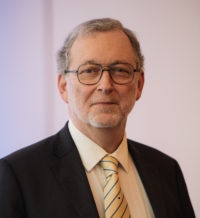European and Global Challenges to the Future of Gas: unburnable or unaffordable?
- Start Tuesday 29 May 2018 6:00pm
- Finish Tuesday 29 May 2018 8:00pm
- Download event slides - PDF (1.52 MB)

Modelling studies suggest that COP21 targets can be met with global gas demand peaking in the 2030s and declining slowly thereafter. This would qualify gas to be considered a `transition fuel’ to a low carbon economy. However, such an outcome is by no means a foregone conclusion, particularly in Europe where decline may be more rapid post-2030. There are limited numbers of countries outside the OECD which can be expected to afford to pay wholesale (or import) prices of $6-8/MMbtu and above, which are needed to remunerate 2017 delivery costs of large volumesof gas from new pipeline gas or LNG projects. Prices towards the top of (and certainly above) this range are likely to make gas increasingly uncompetitive leading to progressive demand destruction even in OECD countries. Thecurrent debate in the gas community is when the `glut’ of LNG will dissipate, and the global supply/demand balance will tighten. The unspoken assumption is that when this happens – generally believed to be around the early/mid 2020s – prices will rise somewhere close to 2011-14 levels, allowing areturn to profitability for projects which came on stream since the mid-2010s and allowing new projects to move forward. Should this assumption provebe correct, it will create major problems for the future of gas. The key to gas fulfilling its potential role as a transition fuel up to and beyond 2030, is that it must be delivered to high income markets below $8/MMbtu,and to low income markets below $6/MMbtu (and ideally closer to $5/MMbtu).The major challenge to the future of gas will be to ensure that it does not become (and in many low-income countries remain) unaffordable and/or uncompetitive, long before its emissions make it unburnable.
Speaker
Jonathan Stern founded the Oxford Institute for Energy Studies (OIES) Natural Gas Research Programme in 2003 and was its Director until October 2011 when he became its Chairman and a Senior Research Fellow, he became a Distinguished Fellow inOctober 2016. He is honorary professor at the Centre for Energy, Petroleum & Mineral Law & Policy, University of Dundee; visiting professor at theCentre for Environmental Policy, Imperial College London; fellow of the Energy Delta Institute and a Distinguished Research Fellow of the Instituteof Energy Economics, Japan (in Tokyo). He is the author and editor of several books, including: The Pricing of Internationally Traded Gas (OUP, 2012). He is author of two chapters in: eds. Anne-Sophie Corbeau andDavid Ledesma, LNG Markets in Transition: the Great Reconfiguration, published by OIES and KAPSARC in 2016. His papers on The Future of Gas in Decarbonising European Energy Markets and Challenges to the Future of Gas: unburnable or unaffordable? were published by the Institute in 2017.

